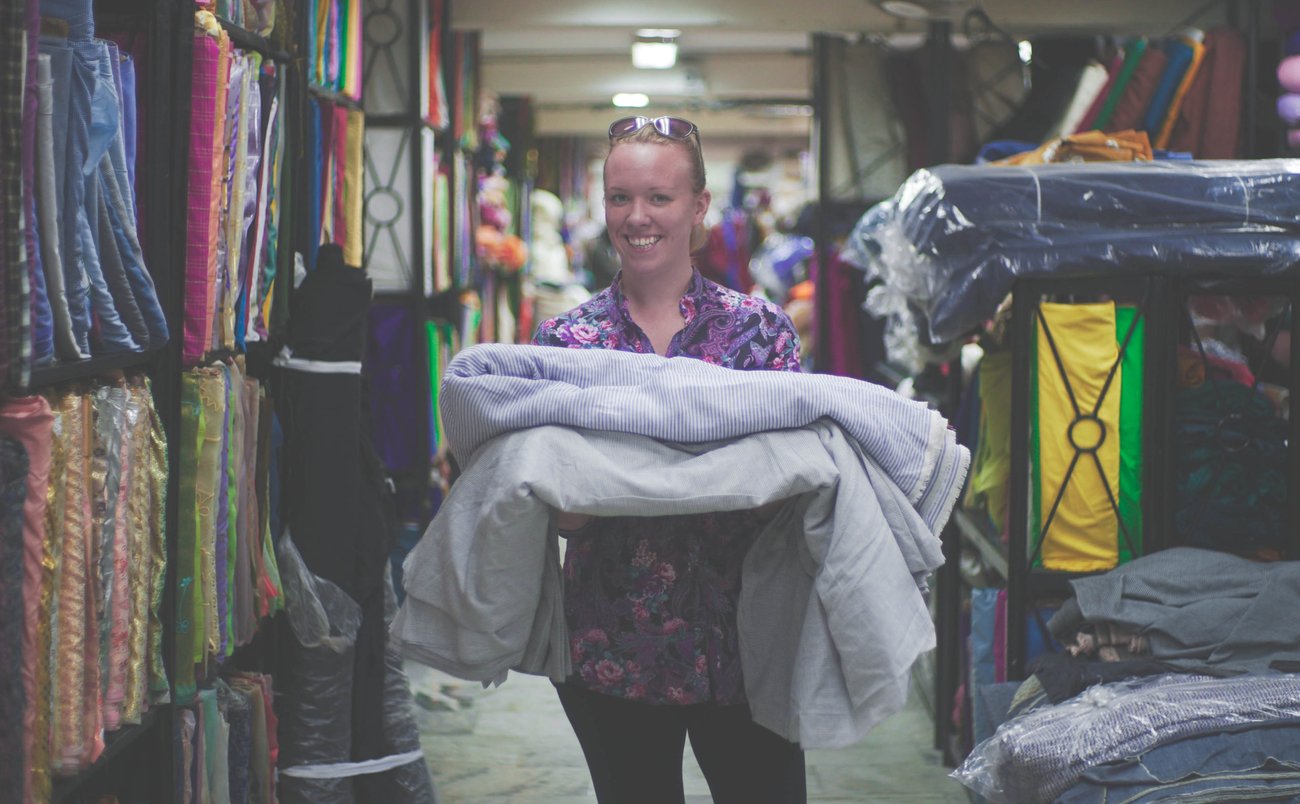New Zealand Innovation Awards: Young New Zealand Innovator, Samantha Jones

As much as we wish we didn’t, we all have problems. Some may just shrug them off and accept them, others – like Samantha Jones – get up and do something about them.
Jones, 28, spent six years as a logistics officer in the Royal New Zealand Air Force (RNZAF) where she wore a uniform daily, before leaving to work in a corporate role. This is where she hit a bump.

“I thought it was crazy that I couldn’t find a sustainable and ethically made uniform for work.”
She says this experience led her to create Little Yellow Bird, an ethically-made corporate uniform and merchandise supplier.
The company, set up in 2015, is on a mission to change perceptions and prove you can do good while doing good business.
The key point of difference between her company and other uniform and apparel companies is having a completely visible supply chain.
As founder and chief executive, Jones has led the organisation from concept through to the current growth stage, and credits her time in RNZAF for her expertise in supply chains.

“We have an innovative approach. Little Yellow Bird was developed with the vision of improving social and environmental sustainability throughout the garment supply chain…more and more businesses are wanting to become more sustainable.”
Jones says with most businesses shifting towards a greater commitment to corporate social responsibility, it is becoming essential they know and understand where their uniforms have been made.
“We differentiate ourselves by offering unique and customisable designs. We have a team of designers available to work with clients or we can alter or provide a similar product to their existing uniforms.”
She says the primary value for her customers is in the social, ethical and sustainability sector.

“They can use their relationship with us as an initiative towards their own CSR objectives. We are also able to supply the exact data in terms of how much water or chemicals were saved as a result of utilising organic rain-fed cotton and we can provide details around which projects their purchase helped us to support.”
With 100 New Zealand businesses as clients, and others in Australia and the United States, the Wellington-based company now has four full-time staff in New Zealand, plus part-time staff.
“Just this week we had an order of over 500 units from a US company,” she says.

Working closely with farmers, sewers, designers and artists, Little Yellow Bird creates the business apparel in a way that won’t compromise workers or the environment. As it couldn’t find manufacturers in New Zealand, it is working with co-operatives in India.
“We not only know where and how our products are made but we also have visibility on where and how the raw materials have been manufactured right back to the farming level. All of our cotton comes from co-operatives that specialise in fair trade and organic cotton and we work closely with the units that stitch the end products.”
She says the company is passionate about improving the livelihoods of garment workers and their communities by providing ethical employment opportunities, education, training and reinvesting profits into community development projects.

“Our products are innovative because of the type of materials we use; our cotton is more sustainable because it is rain fed and organic. We don’t use any harmful chemicals in our production process.”
The factories Little Yellow Bird works with also employ a number of zero waste initiatives and the company ensures none of the uniforms end up in the landfill by working with repurposing partners.
And now she is being recognised for all her hard work and effort. She has been the finalist for a number of awards including an honourable mention by the Sustainable Business Network, and for Wellingtonian of the Year and New Zealand Women of Influence.
“I thought it was crazy I couldn’t find a sustainable and ethically made uniform for work.”
– Samantha Jones
Jones has also recently been selected to participate in the inaugural cohort of the Edmund Hillary Fellowship where she will scale the impact of her venture alongside five other New Zealand and 28 international fellows.
Little Yellow Bird isn’t just a production company, she says. It’s also about education.
She has spoken at over 50 events in the past year, from primary school age through to senior community groups.
“People don’t fully realise their actions of buying cheap things…teaching people what [ethical fashion and consumption] means is important. It’s so important to be sustainable and care about the environment [because] if we don’t there are huge negative consequences.”
As well as growing her own company, she regularly supports other startup founders. She has assisted with Start-up Weekend, Venture Up and many other individuals in the startup community, and says Little Yellow Bird is all about collaboration.
Having achieved a lot at such a young age Jones says she sees her youth as an advantage.
“Naivety can help. It’s got us to where we are now. I might not have got into the industry if I had known what to expect.”

Evaluator comments:




